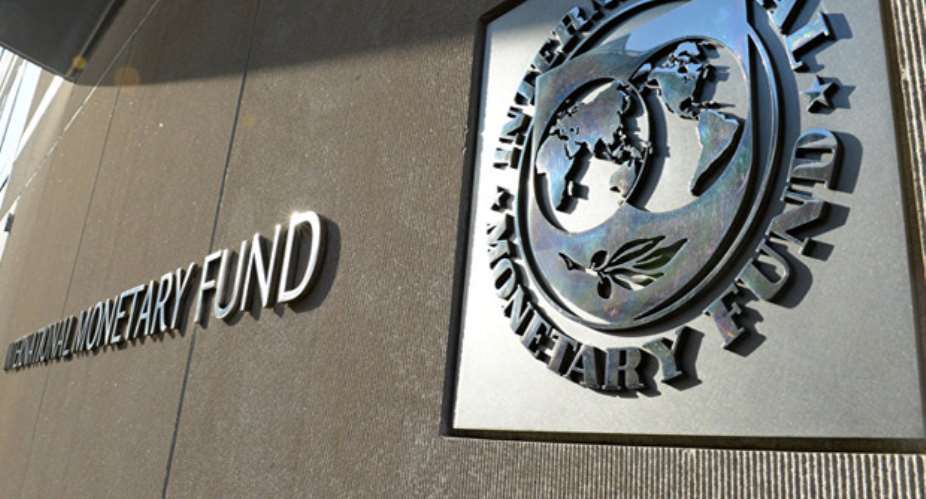An elderly relative often told me he does not write to inform; Only 10% of his writing constitutes that. People know everything but ought to be woken up when they go to sleep. He usually writes to admonish and must obfuscate his thoughts as to ensure that only the sophisticated wrong doer gets his message to avoid being seen as wishing to strip the king of his robes, however his efforts were always wasted because the African sophisticate has neither shame nor scruples.
Taking a stroll back to the IMF can neither be illicit nor dangerous, albeit not the best route for a hardworking and smart African Government. What is paramount though is the seeming absence of integrity in the pronouncements and declarations of Ghana’s politicians; this would appear to be the crux of the matter. The truth does not seem to have the prominence of place in our polity as you would expect a people desperate to prosper as a Nation should have. The ordinary political party supporter agrees that Government must appropriate to fight elections, otherwise your opponent will buy the electorate against you with the little he has. There is extraordinarily little by way of common standards of good behaviour for the people who watch over our assets and resources. They suddenly gain an ability to spend in a way that did not exist prior to gaining access to the Nation’s resources. No one frowns on political or corporate theft and bribery. Like the pyramid scheme the Nation will come to a point when everything comes tumbling down.
A couple of missteps and reckless, though possibly well-intended investments with the family heirloom, have contributed to our return to the IMF. Even England does not have the kind of free Secondary School Education that we have. Private schools in England have Scholastic Scholarships and means assessed Bursaries often funded by private wealth. It would be otherwise unsustainable. Some private schools in England will take you to court to seek recovery if you default on fees. It is no joke. Many of us thus instinctively quietly protested the free for all free SHS, as politically attractive a bait though it was. Folks, you do not need a degree from Oxford to be generous or to grant largess to people: just money. However, to be able to spend the right amount, to the right degree, to generate sustainable growth and development of the Nation so that you no longer need to have recourse to the likes of IMF and external Aid, notwithstanding even external shocks, you need a great thinking cap and a lot of them round the table to make a good case for the traps ahead.
There are basic failures on the part of Ghana’s ‘premiere group of human resource’ – NPP, which has contributed to our current predicament.
When we this Government started there were already fundamental missteps warned against by Global opinion leaders which we brazenly ignored. Running a Country is not simply a matter of putting 1st Class graduates in post irrespective of the accepted precepts.
Professors Acemoglu and Robinson ask an amazingly simple question in a moderate size book – Why Nations fail: Why do some nations become rich, and others remain poor? Their answer is also very simple- because some polities develop more inclusive political institutions. Simon Johnson states that Powerful people always and everywhere seek to grab complete control over government, undermining broader social progress for their own greed. Keep some of these powerful people in check with effective democracy or watch your nation fail. Any two more of our type of presidencies will see Ghana fail like a collapsing ton of bricks.
Again, judging with the words of the American Economist, Jeffrey Sachs whom I referred to in Part 1, the major problem why Nations Fail is that they focus too narrowly on domestic political institutions and ignore other factors, such as technological progress and geopolitics: perhaps Ghana’s digitization & digitalization are aimed at tackling this need although sufficient and appropriate investment as well as enlightened users would be paramount.
Is there a limit to what the IMF can interfere in? if they can demand additional investment in the poor why cannot they as a minimum have a peep into the conspicuous and obvious bribing of voters in-party that seems to motivate at least 50% of corruption in this dear country of ours. What is the point in giving so much money to poor countries when corrupt politicians will keep a lot for their personal use? Furthermore, a corrupt politician cannot think well for his Nation.
I shall return.





 We’ll protect state wealth from opaque deals – Prof Jane Naana
We’ll protect state wealth from opaque deals – Prof Jane Naana
 Mauritania president says running for second term in June polls
Mauritania president says running for second term in June polls
 I won't ever say I was a mere driver’s mate' — Prof. Opoku-Agyemang
I won't ever say I was a mere driver’s mate' — Prof. Opoku-Agyemang
 2024 polls: 'EC struggling to defend credibility'— Prof. Opoku-Agyemang
2024 polls: 'EC struggling to defend credibility'— Prof. Opoku-Agyemang
 Akufo-Addo gov't's 'greed, unbridled arrogance, unrestrained impunity, sheer dis...
Akufo-Addo gov't's 'greed, unbridled arrogance, unrestrained impunity, sheer dis...
 Election 2024: Ghana needs an urgent reset, a leadership that is inspiring – Ma...
Election 2024: Ghana needs an urgent reset, a leadership that is inspiring – Ma...
 Partner NDC to rollout a future of limitless prospects – Prof Jane Naana Opoku-A...
Partner NDC to rollout a future of limitless prospects – Prof Jane Naana Opoku-A...
 NPP will remain in gov’t till Jesus comes — Diana Asamoah
NPP will remain in gov’t till Jesus comes — Diana Asamoah
 Sunyani Technical University demands apology from former SRC president over sex-...
Sunyani Technical University demands apology from former SRC president over sex-...
 'Dumsor' was resolved by Mahama but ‘incompetent' Akufo-Addo has destroyed the g...
'Dumsor' was resolved by Mahama but ‘incompetent' Akufo-Addo has destroyed the g...
